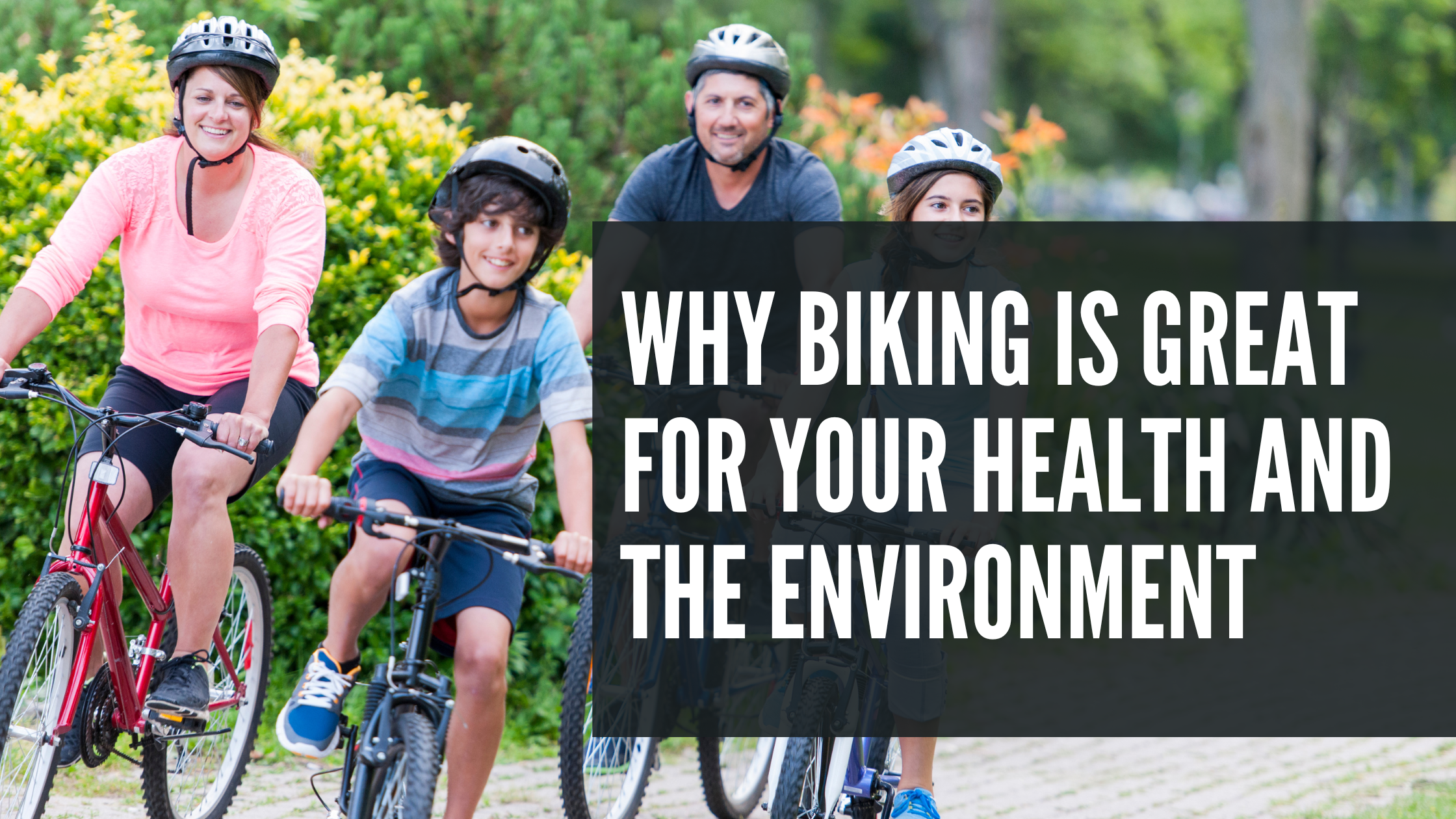Forget the gym memberships and expensive green tech—if you want to make a difference to your health and the planet, just hop on a bike. Biking isn't just a mode of transport; it's a lifestyle choice with incredible benefits. Let’s dive into why biking is a win-win for both you and Mother Earth.
Pedal Your Way to Better Health
1. Cardiovascular Fitness
Cycling gets your heart pumping and improves your cardiovascular health. Regular biking can lower your risk of heart disease, stroke, and high blood pressure. It’s like giving your heart a daily workout without the monotony of the treadmill.
2. Muscle Strength and Tone
Biking targets multiple muscle groups, including your legs, glutes, and core. It's a low-impact exercise, meaning it's gentle on your joints while still providing a great workout. Say goodbye to knee pain and hello to strong, toned legs.
3. Weight Loss and Management
Cycling burns calories at an impressive rate. An hour of moderate biking can burn around 500 calories. Combine that with a balanced diet, and you've got a powerful recipe for weight loss and management.
4. Improved Mental Health
Physical activity releases endorphins, the body's natural mood lifters. Biking can reduce stress, anxiety, and depression. Plus, the sense of freedom and adventure you get from riding a bike can be a fantastic mental health booster.
5. Enhanced Immune System
Regular exercise, like cycling, enhances your immune system, making you less susceptible to common illnesses. It’s a natural way to keep colds and flu at bay.
The Environmental Edge
6. Zero Emissions
Biking produces zero emissions. Unlike cars, bikes don’t burn fossil fuels, making them an eco-friendly alternative. Every mile you bike instead of drive reduces your carbon footprint and helps combat climate change.
7. Reduced Traffic Congestion
More bikes on the road mean fewer cars and less traffic congestion. This not only reduces emissions but also cuts down on noise pollution, making cities quieter and more pleasant.
8. Conservation of Resources
Bikes require far fewer resources to manufacture and maintain compared to cars. They also take up less space, which means less need for extensive roadways and parking lots. It’s a more efficient use of land and materials.
9. Decreased Air Pollution
Biking helps reduce air pollution levels. Car exhaust releases harmful pollutants like nitrogen oxides and particulate matter. By choosing to bike, you contribute to cleaner air and a healthier environment.
Community and Economic Benefits
10. Stronger Communities
Biking fosters a sense of community. Cyclists are more likely to interact with their surroundings and other people, creating a more connected and vibrant community. Bike-friendly areas often see increased social interaction and local business support.
11. Economic Savings
Owning and maintaining a bike is significantly cheaper than a car. No fuel costs, less need for repairs, and lower insurance premiums mean more money in your pocket. Plus, the health benefits can lead to fewer medical expenses over time.
Practical Tips for Getting Started
- Get the Right Gear: Invest in a good bike that fits your needs. Don’t forget a helmet, lights, and reflective gear for safety.
- Start Small: If you’re new to biking, start with short rides and gradually increase your distance.
- Use Bike Lanes: Whenever possible, use designated bike lanes for a safer ride.
- Learn Basic Maintenance: Knowing how to fix a flat tire and perform basic bike maintenance can save you time and money.
Key Points:
- Health Benefits: Improves cardiovascular health, strengthens muscles, aids in weight loss, boosts mental health, and enhances the immune system.
- Environmental Impact: Zero emissions, reduces traffic congestion, conserves resources, and decreases air pollution.
- Community and Economic Benefits: Builds stronger communities, fosters social interaction, supports local businesses, and offers significant economic savings.
- Practical Tips: Invest in proper gear, start with short rides, use bike lanes, and learn basic maintenance.



Share:
The Evolution of Bike Design: From Classic to Modern
Electric vs. Traditional Bikes: Which One is Right for You?